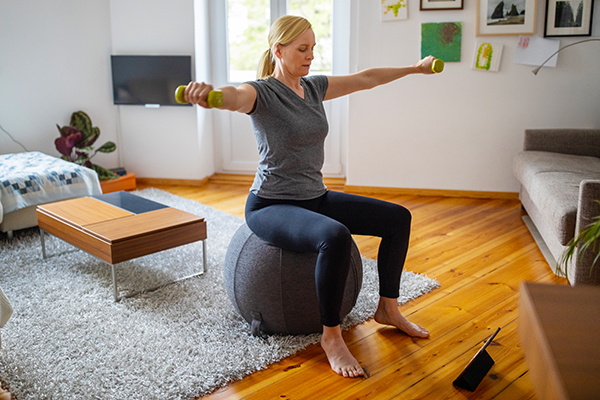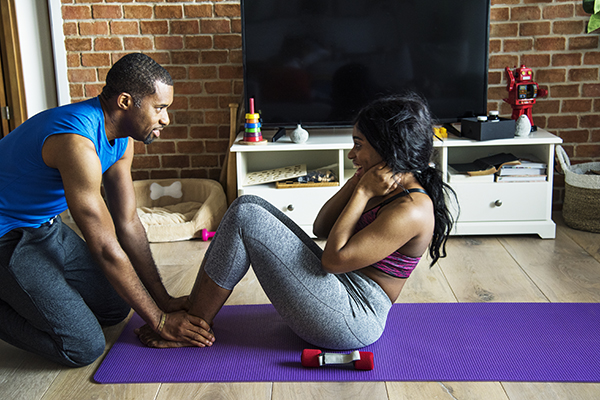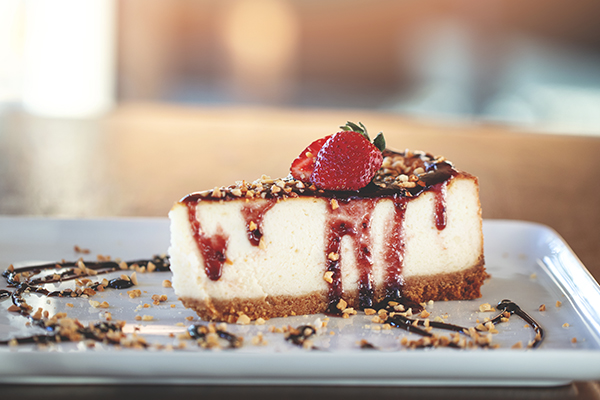9 Ways to Take Control of the Holidays

So many of us kick off the new year with regret, wondering why we indulged so much over the holiday season or why we skipped so many workouts.
It’s that feeling that often pushes us to make harsher-than-necessary New Year’s resolutions.
Make this year different.
There’s no need to swear off cookies through the holidays to take back control and stay aligned with your goals as we usher out the year.
Whether you’re killing your workouts and nutrition with a Beachbody On Demand program or you have another plan in mind, here are strategies for balancing the treats of the holiday season with your goals.

1. Schedule your workouts
Holiday parties won’t force you to skip your workout if you already got it done.
Do your best to get the dates and times of all your hangouts far ahead of time.
Then add your workouts to your calendar around the festivities.
2. Set small goals for yourself each week
Sometimes it’s hard to maintain one big goal through the long stretch between Thanksgiving and New Year’s.
That’s why Emily Tills, M.S., R.D.N., C.D.N., suggests setting small goals for each week. Any goal that improves your routine counts.
She suggests goals like having breakfast every morning — yes, breakfast matters — or scheduling a short walk each day.

3. Find a workout buddy
Keep it virtual, but find someone to log in at the same time for a fitness class or workout session.
That could even be a trainer. Ben Walker, a certified personal trainer and owner of Anywhere Fitness, explains that these ties “hold you accountable for sticking to the schedule.”
Either you’ve paid for the session, or “you have to respect that somebody else has scheduled the same time,” he says.
Or join an online group like BODgroups — a positive, encouraging community of like-minded people who will keep you engaged, motivated, and accountable to your goals.

4. Pick one dessert and plan that indulgence
Tills underscores that enjoying small pieces of a range of desserts can easily lead to overeating. She suggests you “choose one full-size piece of something you’d really like and enjoy it.”
Don’t forget that there will be leftovers; you can choose something else next time!
Be mindful when indulging — sometimes one slice of a dessert-like cheesecake can be very high in empty calories.
So take a few bites, really savor the flavor, and enjoy the dessert fully (don’t just scarf it down).
5. Focus on making your workouts efficient
You don’t need to spend an hour or more sweating each day to see results.
When it comes to exercise, workout density is more important than duration, which is why you can burn just as many (or more) calories during a short, 30-minute high-intensity workout as you can during a much longer, lower-intensity workout.
6. Remember that no food is off-limits
If you need a little help figuring out how to stick to the right-sized portions during the holidays — and beyond — the Portion Fix nutrition program can help you learn how to portion every food, from salad to pumpkin pie, properly.
7. Keep foods in context
Despite how we build the foods up in our heads, holiday desserts aren’t one-season-only dishes. You can make pumpkin pie whenever you want it all year long.
That’s why Tills encourages everyone to “break the food-rule mentality of only being able to have things at certain times.”
She explains that doing so can help you enjoy foods in moderation because you won’t have that now-or-never feeling that drives you to overeat.

8. Squeeze in extra movement when you can
Using Tills’ suggestion to make 10-minute daily walks a goal for one week is an easy way to accomplish this.
For apartment dwellers, Walker encourages taking the stairs instead of the elevator.
While the extra aerobic activity may help keep your weight in check over the holidays, Walker adds that it may do more, from helping you sleep at night to making it easier to manage tension and feelings of anxiety.
9. Plate everything, even snacks
“When you put it on the plate, you’re more mindful of how much you’ve had,” says Tills.
This little habit can help you eat in moderation without feeling deprived because you’re “better able to listen to your body’s satiety cues” when you eat mindfully.
